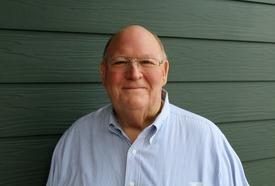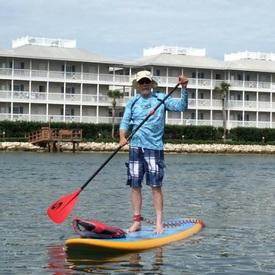Living The Lifestyle Monday 11/27/17

imastar2
Posts: 6,662 Member
Everyone says it, but just how do you do it? How do you take the guidelines of the WW program and turn them into a lifestyle you can live every day...from now on? That is what we are here to explore. Each weekday, a new topic is offered up for discussion. Newbie? Join in! Veteran? Join in! Your thoughts may be just what someone else needs to hear.
Monday -- 88olds (George)
Tuesday -- spospo1 (Steve)
Wednesday -- minimyzeme (Kim)
Thursday -- imastar2 (Derrick)
Friday --Jim376 (Jim)
Today’s Topic: Metro Area or inner Major City Living vs Suburban or Rural or Country Living.
Do you think where you live has or could have affected your Lifestyle Journey? as in a major inner city metro area or suburbs of a major city or in the country or rural area way away from major cities.
Just wondering how those who live in different geographical areas could be affected differently with LTL.
Monday -- 88olds (George)
Tuesday -- spospo1 (Steve)
Wednesday -- minimyzeme (Kim)
Thursday -- imastar2 (Derrick)
Friday --Jim376 (Jim)
Today’s Topic: Metro Area or inner Major City Living vs Suburban or Rural or Country Living.
Do you think where you live has or could have affected your Lifestyle Journey? as in a major inner city metro area or suburbs of a major city or in the country or rural area way away from major cities.
Just wondering how those who live in different geographical areas could be affected differently with LTL.
0
Replies
-
I live in the shadow of Atlanta about 45 miles from the city in a small north suburban city which is about 20,000 people but a county of about 200,000 people. Our county adjoins another county that is close to 1,000,000 people then you hit metro Atlanta. It just kinda hit me yesterday morning to bring this topic up wondering if those on the board handled eating any different if they were in the country or in a rual area. Not sure what the difference would be but I know I'm surrounded by every major food chain in the world and lots of small Mom and Pap restaurants as well as all the big box stores like Costco, Sam's Walmart, Publix, and the largest newest Kroger in the Southeast is 1 mile from my home.
My food choices are unlimited. That makes it easy one hand to have everything on hand that I need but on the other hand it makes it real easy to stop by and bust the budget but picking up some onesies or twosies or just eat out which is never a good idea. We do some much better not yielding to the temptations of going out and keeping everything in the freezer or the fridge that we need. We are true suburbanites.
DW drives into Atlanta on Monday' s to work and I have the decision of trying to have at least a choice for dinner or making dinner or picking up something if I don't have time to prepare dinner. So that's where we are in the scheme of things and I just wonder if I lived in a small town somewhere rural area or a coastal town which most coastal towns are pretty large themselves if things would be any easier to control without so many choices.0 -
Do you think where you live has or could have affected your Lifestyle Journey? as in a major inner city metro area or suburbs of a major city or in the country or rural area way away from major cities.
Just wondering how those who live in different geographical areas could be affected differently with LTL.
The bad- I lived most of my life in the Chicago burbs. At different times, North, South, West and in city. For a while I lived in central Illinois. My quality of life was much better downstate. Less money but much better life. I may not recover from 30 years of Chicago commuting in my lifetime. Just how it is.
The good- as to WL, I think I benefited from the variety of food choices and dining options. I've always eaten out a lot. All the time I was losing, I kept eating in restaurants. I found that there were quite a few places I could go in the north burbs with my dietary requirements and get what I wanted. My attempts to use the same strategies out of town did not go well.
Then there's candy. The availability of high quality imported candy got me off the readily available kid candy. I didn't keep candy at the house. If I really wanted it, I had to go to one of the specialty shops and get it. High quality and a bit pricy. Kept me in check.0 -
Absolutely. I live in a mid-sized college town. I have access to multiple fitness options, walking trails, and multiple grocery stores with fresh produce. In contrast, my MIL lives in the middle of nowhere ND where the nearest Walmart is even 60 minutes away. The local grocery store has sub-par produce and limited healthy options. Fresh options are also WAY more expensive than what I pay for. The nearest fitness facility is 30 minutes away and it's cramped, dark, and tucked in the corner of the hospital- not a very welcoming environment. I struggle BIG TIME when I visit for just a few days. I can only imagine how much I would struggle actually living in a food desert.0
-
I've lived in the Chicago suburbs my entire life. I take for granted that I have 3 Trader Joe's within a 10 mile radius. My fitness center is 2.4 miles from my house (my high tech car tells me this every morning). The Morton Arboretum is only 4 miles away.
The downside of living in a major metropolitan area is that if I want to do any serious hiking or bike riding, I need to drive at least 90 minutes or more. On the other hand, I do have a lot of crushed limestone and paved bike trails just a couple miles from home. I do have separation from cars but have more busy intersections to cross (with stoplights) than I would prefer.
I spent the past 3 days up in rural Wisconsin hiking more segments of the Ice Age Trail. I took my own items to heat up in the microwave in my hotel for breakfast and lunch. Even though I was staying in a town large enough to support both a WalMart and a Farm & Fleet, I didn't have reliable cellphone service. I had better reception a few miles north out on the trails, go figure.
I've joked with my friend in Virginia who lives in the Shenandoah Valley that to live there I would have to buy a big *kitten* freezer and do a quarterly trip to the Trader Joe's that is 60 miles away. She can get out to rural country roads just 2 miles from her driveway to cycle.
Positives and negatives to any place you live.
0 -
Maybe?? I did not live in a rural area growing up. Lived in college town from Junior high on but we did have hills and mountains above us in SoCal. Lived in Chicago for awhile too. I think my food habits had more to do with my mom who was ahead of her time nutrition wise. Really they have pizza even in the outer slopes of Alaska I think if ya want to overindulge and candy too. For me more about family than region.
I do think that not living in inner city probably helped with my biking habits although my older brother use to bike in downtown Chicago and there is always the Lakefront to bike on too.0 -
I live in (take it with a grain of salt) America's Fittest City. Does it matter? Probably, to some degree. It certainly doesn't hurt. When all is said and done, though, it's a matter of personal choice. The bike and ski trails, fitness centers, and other amenities are lovely, and it's easy to find healthy food choices. The flipside: the burgers are tasty, the donuts tempting, and the craft beers delightful. I don't feel a lot of peer pressure to be healthy because of being around fit people. Maybe some, but not a lot.0
-
Today’s Topic: Metro Area or inner Major City Living vs Suburban or Rural or Country Living.
Do you think where you live has or could have affected your Lifestyle Journey? as in a major inner city metro area or suburbs of a major city or in the country or rural area way away from major cities.
Just wondering how those who live in different geographical areas could be affected differently with LTL.
I think culturally, it does make a difference... Living in Southern California, there is a strong social drive to eat organic, locally produced, gmo free, etc. Beyond just being "trendy", it has become nearly expected in most social circles, and obesity is strongly frowned upon here... Not openly, but having a healthy shape has become it's own status symbol, and... status is a pretty big deal around here.
It sets up an atmosphere and a continuous exposure to healthy messages. Some Examples:
In my suburb town of roughly 60,000, there are no less than 7 gym chains represented, and many more smaller boutique gyms (and we're not known as an affluent community.. go to some of the more high end areas, and they almost outnumber Starbucks!!)
Multiple farmers markets and even farm-to-plate co-ops are both within 5 minutes drive of my home.
Hiking trails abound throughout the outskirts of my neighborhood, and they are utilized often. If I'm willing to drive 10 minutes, I have access to dozens more.
Bike lanes and dedicated paths are ubiquitous (cycling is a big deal around here).
I can't swing a dead cat without hitting a martial arts school.
Healthy options for restaurants, although not as common as martial arts schools or Starbucks, are easily found and inconspicuously located.
Of course there is the flip side - the availability of cheap high calorie food, too.0 -
Interesting question. I've actually wondered that myself when vacationing.
This year we went to on a cruise in the Caribbean, to the smokey mountains, AZ, and Las Vegas. We used the gym, did laps on the ship, hiked, climbed and were overall, super active! 10,000 steps a day was no challenge, heck some days we hit 30,000.
I wonder, if i lived in these places where walking/hiking is so beautiful or interesting, would I be more active, or would the novelty wear off. I really don't know, but sometimes I like to find out!0 -
I've often wondered if my activity would change if I lived in a beautiful place like Ft. Collins, CO I love the mountains and the trails that come along with it. Here in the Chicago suburbs I have access to a wonderful bike path that goes for more miles than I'll ever ride, but it is easy to say I'll do it tomorrow. Something tells me that if I lived in the mountains I would find excuses not to get out and enjoy nature.0
-
Very interesting concept, Derrick @imastar2 ! For me, the geography has made a difference in several ways. I live very rural, but within 10 miles of a city with a population of 30,000. Italians and Swedes were the (or close to the) first white settlers in the area but it now sports a substantial Latino and African American population. Nonetheless, eating establishments in the area are generally American, Italian, and Mexican. There's a couple Chinese places and within the last six months, an Indian place.
I've lived here for about 15 years and let's just say the cuisine in general isn't anything to write home about. Which isn't to say I haven't eaten plenty of it, just that I don't consider any of it anything special. And there really isn't a lot of variety. I ate out much more in my first few years here than I do now, though admittedly that also has a lot to do with me being on WW. What is really interesting and insightful to me is how I used to plan every trip to or through a bigger city around food. I love roadfood. I love Mom-n-Pop cafes, bars, bakeries, etc. If I was traveling, you can bet I built my trip around food as much as possible. I was counting nothing--points, calories, etc.. I just wanted to get as much decent food as possible / mile of pavement traveled. Some of my choices were local fare--there's a lot good roadfood around. But I also craved Greek and Thai and better Chinese than we have around here. And bar food and bakeries! So I'd stuff in as much as possible throughout the course of day and night. The net result was that between the eating I was doing locally and what I really piled on when I traveled, I'm not at all surprised I put on the better part of 80 pounds over a few years.
I eat a lot less now, whether I'm staying local or going out of the area. My food choices have become much more particular than they used to be. I go out to eat much less locally than I used to. Given the chance, I'll still try to indulge in some good stuff when I travel, but even then my choices have changed a lot. I'm not likely to do all three meals out when on the road--maybe one. When I traveled I would rarely try to do anything for exercise. Now, I make a point to at least walk when I'm on the road. Time walking is not eating so that works on two counts.
There's no way of knowing for sure, but I'm pretty confident my pattern would have been similar if I had more / better access to food where I lived if I was in a larger urban area. I'm sure I would have overeaten around home, maybe more than I did where I do live. Maybe being on the road wouldn't have have the same inclination to lead me to food if I had more choices locally, but I tend to doubt it.
What we lack in restaurants we make up for in fields, farms and forests. Only some of that is open to the public though. On days that I make it Lake Erie, I
love walking for miles on the beach. When I'm closer to home, I don't make as much time as I could for hiking--there's actually a decent trail network pretty close to home. When I can in the winter, I really enjoy being able to snowshoe right out my back door! Still juggling the exercise thing with what I need and want to get done in a day...
In summary though, I think geography probably played a bigger role for me pre-WW than since I've been on the program. A big part of LTL for me really comes down to my food choices. I've paid much more attention to them no matter where I am since being on WW than I ever did before that.
0 -
Thanks to all for a great discussion on Urban, Suburban or Rural and Country Living that may or may not affect your Living the Lifestyle Journey. I agree that in the end it's all about our personal choices. To the point made though in some areas choices can be slim or none and one would have to have some good storage in certain rural areas. I actually think that in some farm and rural areas that for the most part those folks probably have a pretty good all around diet.0
-
@Calvin2008Brian I forgot you were a fellow Minnesotan! I miss living in Minneapolis sometimes, it really was a fitness oriented city.
@imastar2 Sadly, rural populations often struggle with nutrition and obesity more than urban populations, largely due to rampant poverty and food deserts. It is something I see firsthand when I go to visit my in-laws in their 200 person town. I feel very fortunate that I live where I do and have access to the multitude of resources that come with my location.
http://advances.nutrition.org/content/5/6/809.full
http://journals.lww.com/jphmp/Citation/2013/11000/Combatting_the_Obesity_Epidemic_in_Rural_America__.1.aspx
0
This discussion has been closed.








